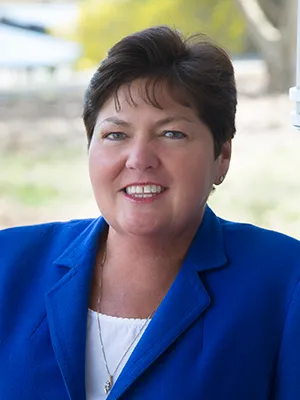
Denise Vill’Neuve
Academic Rank:
Professor, Chair
Department:
Allied Health
School:
Health Professions & Natural Sciences
Office: CH 302
Phone: 973-328-5354
Email: dvillneuve@ccm.edu
Education: M.A., B.S., Montclair State University; A.A.S., Bergen Community College
Professor Denise Vill’Neuve first realized she wanted to work in healthcare when she was a 12-year-old candy striper at a local hospital. “At first, I wanted to be a nurse. But they kept sending me to the radiology department and after a while I developed an interest in that area of medicine.”
After graduating from college, she spent eight years working as a radiologic technologist in a number of hospitals. “The most rewarding experience in this field is seeing a very sick patient eventually walk out of the hospital, or seeing someone who has been undergoing radiation therapy come in at their follow-up visit with their health restored,” say Vill’Neuve, chair of the Allied Health Department at County College of Morris (CCM).
Some of her more challenging assignments came during her early years in the profession while working at an urban hospital. “They did not have a medical examiner’s office at that time,” she recalls. So the police would bring murder victims to the hospital to be x-rayed for criminal cases. “It was quite disturbing. We did not become hardened, but you’re there to do a job. You have to do it and you can cry later.”
Eventually, she decided she wanted to mentor others entering her field and joined the faculty at Bergen Community College. After 15 years there, she came to CCM in 1999 to help set up the Radiography Program. Although she has taught for more than 25 years, she makes it a point to keep up with advancements in the field by working per diem as a CT technologist.
Radiologic technologists see a wide range of patients, including those hurt in accidents, people undergoing chemotherapy and patients being monitored and treated for cardiovascular conditions. “It makes you aware that your life can change in a matter of seconds, and you have to live for today,” Vill’Neuve says.
“To work in the radiography field, you need to have a strong commitment to your profession and have to be able to deal with stress in a hospital setting,” she says. “But most importantly, you have to love taking caring of people. That’s the bottom line.”